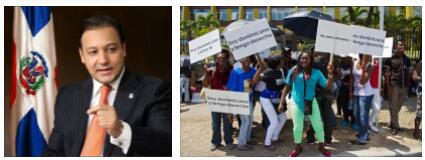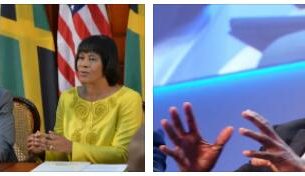Under the 1978 Constitution, Dominica is a parliamentary republic. There is a “Westminster model” of state power organization (see Antigua and Barbuda). Administratively, it is divided into 10 parishes. Largest cities: Roseau, Portsmouth, Marigot, Grand Bay. The head of state is the president, who has been performing representative functions, since 2003, Nicholas Liverpool. The highest body of legislative power is the unicameral chamber of assembly consisting of 21 elected parliamentarians and 9 senators appointed by the president. The executive branch is a government headed by a prime minister appointed by the president based on the results of parliamentary elections, since 2004 Roosevelt Skerrit. Check diseaseslearning for political system of Dominica.
Elections to the House of Assembly are held once every 5 years according to the majoritarian system in single-mandate constituencies. Universal suffrage is granted from the age of 18 to all Commonwealth citizens who have lived in the country for more than a year. The president is elected by the members of the legislature. They can be a resident of Dominica at the age of 40, who had citizenship of the country at least 5 years before being nominated for this post and who is an elected member of the House of Assembly or a senator. The presidential term is 5 years. The President may be re-elected for a second term without the right to hold office again in the future. When the presidential candidacy is agreed upon by the leaders of the ruling party and the opposition, elections are not held. In the case of nomination of different candidates, elections are held by secret ballot with the obligatory participation of all legislators.
The procedure for recalling the President may be initiated by at least 1/3 of the members of the House of Assembly. The reasons are: violation of the provisions of the Constitution; actions endangering the security of the state; behavior that harms the prestige of power; physical or mental inability to perform their duties. It has not been applied in practice.
Local self-government bodies operate in the person of 38 city and village councils, consisting, as a rule, of 5 elected and 3 members appointed by the Department of Local Self-Government for a term of 3 years. The heads of local administrations are elected only from elected members. Functions are limited: control over trade, sanitary condition, road repair. It is planned to transfer partial responsibility for the activities of schools to local councils. The Caribs elect all members of the council and the chief.
The most prominent political figure in the history of Dominica is M.Yu. Charles is one of the founders, and since 1970 the leader of the Dominica Freedom Party. From 1975 she headed the opposition, from 1980-95 she was prime minister, the first woman to hold this post in the Caribbean. It succeeded in normalizing the explosive situation that had developed after the turbulent events of 1979, for which a state of emergency was introduced three times between 1980 and 1983, and in strengthening the foundations of the constitutional system. She became famous as the “iron lady of the Caribbean”, pursued a pro-American policy, actively opposed the establishment of any relations with Cuba. It was she, being the head of the Organization of Eastern Caribbean States, who initiated the intervention in Grenada in 1983. In 1994, dissatisfaction with her policies caused mass demonstrations that led to the establishment of a state of emergency.
Since 1990, the party system has reflected three major strands of the political spectrum: right, center and moderate left. The Labor Party of Dominica was founded in 1955. Adheres to the social democratic orientation, a consultative member of the Socialist International. She was in power from 1961-79. In the 2000 elections, she received 42.3% of the vote and 10 seats in parliament, again heading the government. Leader – R. Skerrit. The United Workers’ Party was founded in 1988; it adheres to centrist positions and maintains ties with the trade union movement. Since 1990 – the main opposition, in 1995-2000 – the ruling party. In the 2000 elections, she received 42.9% of the vote and 9 seats in parliament, went into opposition. Leader – E. James. The Dominica Freedom Party, active since 1968, is the most conservative party in the Anglophone Caribbean. Member of the International Democratic Union and Christian Democratic International. The ruling party in 1980-95. In the 2000 elections, she received 13.5% of the vote and 2 parliamentary seats. She entered the coalition government with the Laborites, in which she has two ministerial posts. Leader – Ch. Savarin.
From Ser. 90s the main changes concerned foreign policy, in 1996 diplomatic relations were established with Cuba, with the coming to power of the current government, a course was taken to intensify ties with France and its overseas departments in the Caribbean – Guadeloupe and Martinique.
The army was liquidated after two attempts at a military coup in 1981. As part of the police force of 300 people. – Special Forces and Coast Guard.
Diplomatic relations with the Russian Federation were established in 1995.



